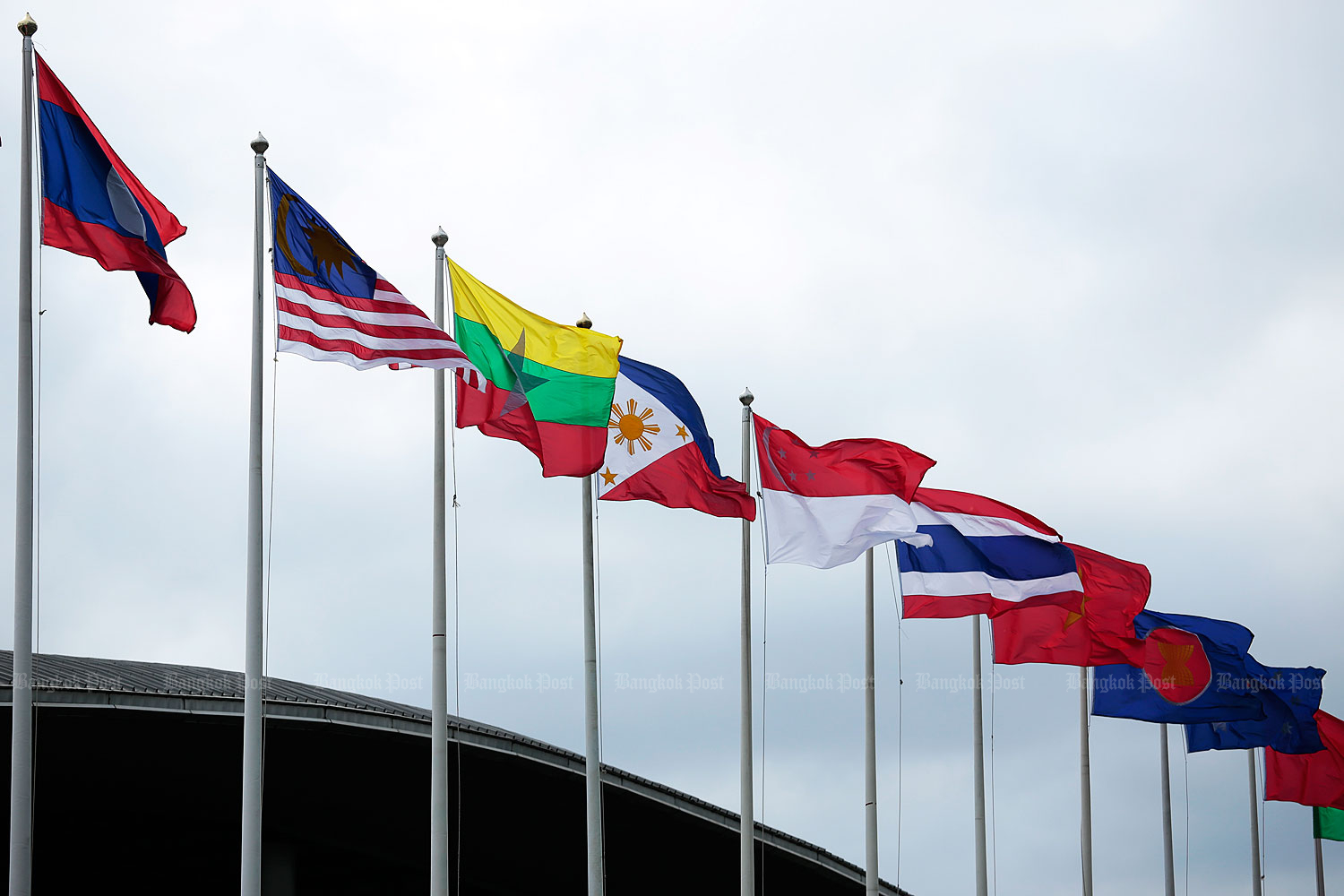
A decentralised world order could disintegrate the Association of Southeast Asian Nations (Asean) into factions, with mainland countries gravitating to China, maritime states forging closer ties, and Thailand left hanging in the middle, a forum was told on Friday.
Speaking at "Where Northeast Asia Meets Southeast Asia: The Great Powers, Global Disorder, and Asia's Future" held at Chulalongkorn University, Donald K Emmerson, the director of the Southeast Asia Programme at Stanford University, raised the possibility that Southeast Asia could cease to exist in its present form.
"[The region will change into a form] where Asean shrinks to a maritime version on the extreme northern tier of Southeast Asia on the border with China with the exception of Vietnam, which for historical reasons you all understand will not cater to China unless it is in its own national interest to do so," he said.
"If you leave Vietnam aside, the other three countries become part of greater China and Asean then falls back to the maritime region. Remember that it is obviously physically different from the Chinese mainland and also religiously different. That's why you have Muslim-majority nations," he told the Bangkok Post.
Meanwhile, Thitinan Pongsudhirak, the director of the Institute of Security and International Studies Thailand at Chulalongkorn University, pointed out that some mainland countries still retain their autonomy from China.
"You can't really say they are coming into China's orbit because of Vietnam and, to a lesser extent, Thailand and Myanmar. But you can make a case for Laos and Cambodia," he said.
Despite the prevalence of the Chinese, the associate professor said the country is "a force to reckon with" and took note of growing weariness and scepticism towards the major power in Asean.
"The Cambodian government is pro-China, but its people are sceptical. In Thailand, that is why there has been no rail progress. In the worst case, there could be a backlash against China. You can look at a pushback against the BRI [Belt and Road Initiative] in many countries. If you get below that, there is a popular disenchantment with the Chinese overwhelming, overbearing influence," he said.
However, former foreign minister Kasit Piromya said he cannot give up on the idea of the integration process of Asean.
"The ten of us have to find a way to work together. We cannot split to be eaten alive by China. A couple of things have to be done. I have been talking to US, European, and Japanese diplomats ... In terms of their professionalism and obligation, they must keep on pushing with the host governments in the Indo-Pacific region about openness and the success stories of combining democracy and liberal thinking with capitalist, social-oriented economic development. In the past, they gave areas of Southeast Asia to the Chinese and Russian inroads about the one-party system," he said.